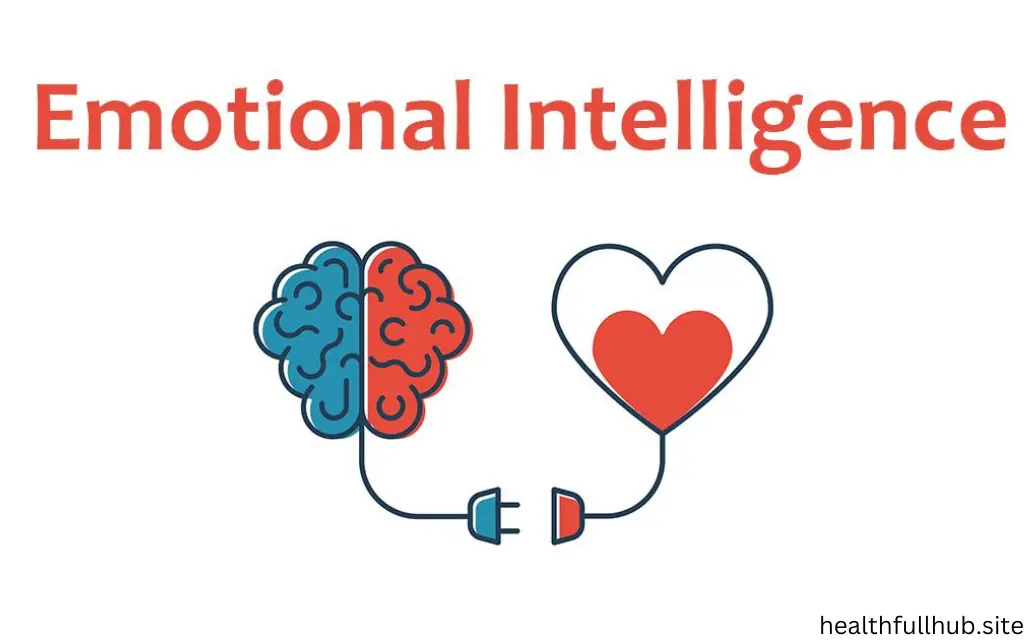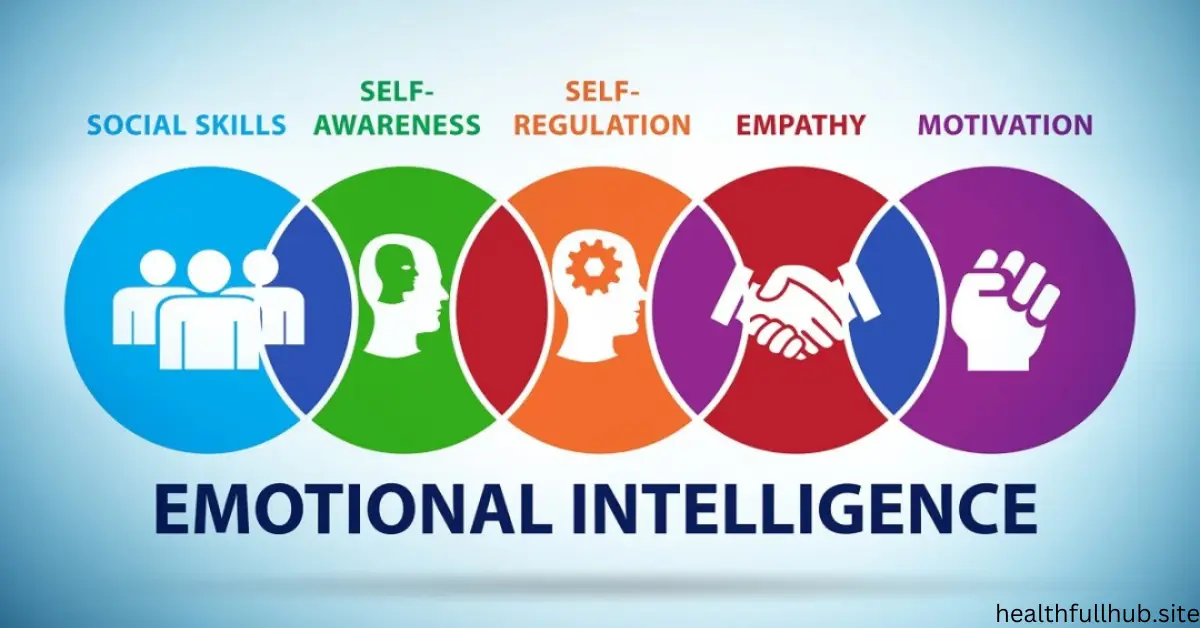In today’s complex experience, Emotional Intelligence exciting intelligence (EI) has rose all at once of the most detracting abilities for personal and professional advance. It offers far further simple ideas, risking a key role in in what way or manner we have connection with others, handle stress, form resolutions, and lead teams. Emotional data impacts all facet of our lives, helping us operate challenges and build more powerful relationships. In this item, we will analyze what emotional intellect really method, its significance in differing spheres, and by what method to cultivate and improve this essential ability.
What is Emotional Intelligence?

Emotional intelligence is defined as the ability to recognize, understand, manage, and influence your own emotions and those of others. This concept is often broken down into five key components:
- Self-regulation – The ability to manage your emotions in healthy ways, without suppressing or over-expressing them.
- Motivation – The intrinsic drive to improve and achieve, even when faced with setbacks.
- Empathy – The capacity to understand and share the feelings of others, fostering strong social connections.
- Social skills – Skills that facilitate communication and interaction with others effectively and harmoniously.
Each of these components plays a vital role in cultivating a well-rounded individual capable of navigating both personal and professional challenges with grace and emotional agility.
Why is Emotional Intelligence Important?
The weight of touching intelligence cannot be inflate. In the institution, emotionally bright things tend expected better heads, more direct collaborators, and mainly more profitable in their roles. But reason is this the case?
1. Enhances Leadership Abilities
Leaders beside important touching intelligence are more versed at directing crews and forceful results. They are acceptable seeing the emotional states of their crew appendages, providing support when inevitable, and forging a definite work surroundings. Empathy allows authority to buy and sell their groups on a deeper level, supporting trust and open ideas.
2. Boosts Workplace Performance
People accompanying forceful emotional knowledge are frequently more effective at their tasks. By directing their own emotions, they can wait calm and directed under pressure. Their strength to manage affections helps them form determinations based on sense alternately emotional responses. In extreme-stress situations, they are intelligent to assert a sense of balance and outlook, which is important for claiming productivity and act.
3. Improves Relationships and Collaboration
Emotional knowledge allows individuals to accept and accomplish the feelings of remainder of something. This leads to better communication, discounted conflict, and more forceful connections. In team backgrounds, excitedly inventive people learn cooperation, as they are receptive the needs and impressions of their colleagues. This founds an air of shared respect, where plans can flow freely justly of doom or fight.
4. Increases Adaptability and Problem-Solving
Emotionally bright things are better equipped to handle change and resolve questions. They can conform to new positions more easily cause they appreciate their own sympathy and by virtue of what to manage conservatives in spite of doubt. Their skill to view challenges objectively and accompanying a soundness admits for more productive and effective logical.
5. Reduces Stress and Improves Mental Health
Understanding and directing emotions can considerably decrease stress. Emotional intelligence helps things cultivate coping machines for handling stressful positions, allowing ruling class to wait calm and avoid exciting weariness. This not only improves insane health but likewise improves overall well-being.
Developing Emotional Intelligence: Practical Steps
While some individuals may naturally possess high emotional intelligence, it is a skill that can be developed with effort and practice. Here are several key strategies to improve emotional intelligence:
1. Practice Self-Awareness
One of the first steps in developing emotional intelligence is increasing self-awareness. Take time to reflect on your emotions throughout the day and consider how they influence your thoughts and actions. Journaling can be a powerful tool in this process, as it allows you to track your emotional responses to various situations and identify patterns.
2. Learn to Self-Regulate
Self-regulation involves managing your emotions so they don’t negatively impact your behavior or decision-making. Techniques such as deep breathing, mindfulness, and meditation can help you remain calm and collected during stressful situations. By practicing self-regulation, you can become more resilient and less reactive to external pressures.
3. Develop Empathy
Empathy is a cornerstone of emotional intelligence and can be cultivated by actively listening to others and considering their perspectives. When engaging with someone, focus on understanding their emotional state, not just their words. This will help you build stronger, more meaningful connections and enhance your interpersonal relationships.
4. Enhance Social Skills
Improving your social skills requires intentional practice. Engage in conversations where you can practice active listening, maintain eye contact, and express yourself clearly. Over time, these interactions will become more natural, allowing you to navigate social situations with ease and confidence.
5. Stay Motivated
Motivation is an essential element of emotional intelligence, particularly when it comes to personal growth. Set goals for yourself, both professionally and personally, and strive to achieve them. By maintaining an intrinsic drive to improve, you’ll continue to build emotional intelligence and enhance your overall success.
Emotional Intelligence in Leadership
They understand the importance of emotional balance and lead by example, managing their own emotions while being mindful of the emotional climate of their team. Such leaders inspire loyalty and trust, two critical factors for building a cohesive and high-performing team.
Moreover, emotionally intelligent leaders are better equipped to handle crises. They remain composed under pressure, offering calm and steady guidance in turbulent times. Their ability to connect with their team on an emotional level allows them to navigate challenging situations with empathy and strategic foresight.
The Impact of Emotional Intelligence on Personal Relationships
Beyond the workplace, emotional intelligence plays a significant role in personal relationships. Whether with family, friends, or partners, being emotionally intelligent allows for deeper, more fulfilling connections. People who understand their own emotions and can empathize with others are better equipped to navigate the complexities of intimate relationships.
Empathy, in particular, is crucial for resolving conflicts and fostering understanding. By putting yourself in someone else’s shoes, you can better appreciate their perspective, leading to more meaningful and productive conversations. In this way, emotional intelligence strengthens bonds and enhances the quality of personal relationships.
Conclusion
Emotional intelligence is an invaluable skill in both personal and professional realms. It enhances leadership abilities, improves workplace performance, and fosters stronger, more fulfilling relationships. By developing self-awareness, self-regulation, empathy, motivation, and social skills, anyone can improve their emotional intelligence and unlock their full potential.



